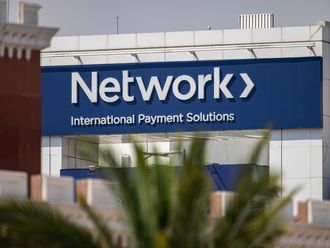RIYADH: Samba Financial Group, Saudi Arabia’s third-largest bank by assets, expects Saudi banks to see double-digit asset growth by early 2020, supported by government plans to diversify its oil-based economy, its chief executive told Reuters.
Riyadh plans to increase state spending to an all-time high of 1.11 trillion riyals ($295 billion, Dh1 trillion) this year, from 1.03 trillion in 2018, in an effort to spur economic growth that has been hurt by relatively low oil prices.
Exemplifying the investment spree is the multi-billion dollar Qiddiya entertainment resort near Riyadh, whose construction was begun in April last year and which promises more than 300 recreational and educational facilities.
“The government announced a number of transformational projects in entertainment, tourism, housing, and small and medium enterprises (SMEs). All these initiatives will add multi-billion dollars to Samba and the banking industry,” Rania Nashar said in an interview.
“We believe that credit uptake will be moving up sharply and we could see double-digit asset growth, if not by the end of this year then by early 2020,” she added.
Nashar, who in 2017 became the first female CEO of a listed Saudi commercial bank, expects loan growth to pick up in the third quarter.
Lending activity to the private sector, a sign of banks’ confidence in the economy, had weakened over the past few years as the oil price slump slowed down the kingdom’s economic growth and cut demand for loans.
Yet lending grew 2.8 per cent in 2018, mostly driven by demand for mortgages under government plans to increase home ownership. Total asset growth reached 2.5 per cent during the same period.
Samba, which reported a 10 per cent rise in 2018 net profit and which ranks behind National Commercial Bank (NCB) and Al Rajhi among Saudi banks by total assets, will increase consumer lending to tap opportunities in mortgage and SME finance, Nashar said.
She also said the bank is looking into opportunities to issue bonds, without giving details.
Regarding consolidation in the Saudi banking sector, Nashar said Samba is not actively evaluating any proposals to merge with other banks.
She did not expect any significant impact on Samba’s growth from recent mergers, involving NCB and Riyad Bank, and Saudi British Bank and Al Awwal.
“It is possible that Samba may initially lose its ranking among the top three banks,” she added. “But we can gain from the increased business from customers of these merged entities who choose to diversify to other banks.”












